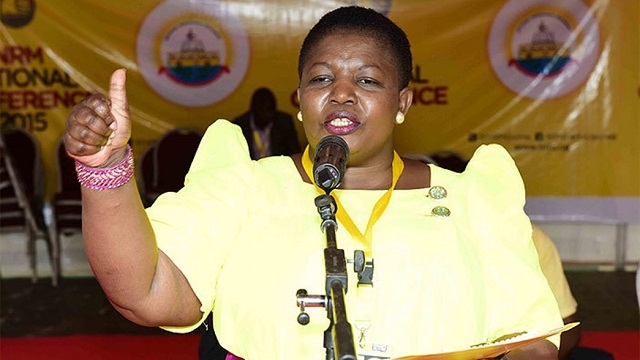Minister in charge of General Duties in the Office of the Prime Minister Justine Lumumba Kasule has issued an apology to the Nation about the government’s delay in delivering free sanitary pads to girls in different regions across the country.
” The free sanitary pads are some of the presidential pledges in the 2016- 2021 Manifesto for NRM. The government had to address school, menstrual hygiene and promote dignity plus the well being of the adolescent girls in primary and secondary schools,” said Lumumba.
The commitment was anticipated to be put into action during the Financial Year 2017/2018. However, as of now, the initiative remains confined to mere words, eight years since President Yoweri Kaguta Museveni first announced it.
Lumumba asserts that the failure to fulfil this pledge reflects poorly on all the women who constitute 43 percent of Museveni’s cabinet. She argues that the government should redirect its efforts towards initiatives like providing free condoms in public toilets to combat the spread of HIV/AIDS and address the needs of vulnerable girls.
Speaking on Sunday at the Sheraton Hotel in Kampala during the conclusion of the third annual exhibition dubbed “Because of Her,” Lumumba emphasized the importance of commemorating International Women’s Day to celebrate women’s achievements and advocate for gender equality in Uganda.
Patience Poni Ayikoru, an advocate for governance and gender justice and the founder of ‘Femme Talk West Nile,’ a volunteer-based organization in Koboko District, states that they have established stations to distribute free sanitary pads in the region while awaiting government action.
Keisha Patience, who co-founded Because of Her alongside her twin sister Portia Owera, explains that their mission now extends to establishing sanitary pad distribution centres in the Kigezi region and providing training to women and girls on making their own reusable and disposable pads to alleviate period poverty.
During the same event, Catherine Kyokunda Donovan, the Commissioner of Legal Services and Border Affairs at Uganda Revenue Authority (URA), stressed the urgent need for sanitary pads, emphasizing that the government must promptly address this issue to empower and motivate girls and women.
However, activists challenge the government’s commitment to women’s empowerment, despite boasting of initiatives such as 43 per cent representation of women in the Cabinet, 46 per cent in local government positions, and 33 per cent in Parliament. They urge the government to invest in girls to foster a sustainable and prosperous society.
In April 2020, First Lady Janet Kataha Museveni, also the Minister of Education and Sports, announced plans for the government to establish a sanitary pad manufacturing factory to distribute pads free of charge to all girls nationwide. However, this plan has yet to materialize.
In Uganda, the rate of school dropout among girls remains higher compared to boys, largely due to inadequate infrastructure including clean lavatories, changing rooms, water for washing, and hygienic sanitary products for effective menstrual management.
Studies indicate that one in ten menstruating girls misses four to ten days of school per month or drops out entirely. On average, menstruating girls lose 13 learning days, equivalent to two weeks of learning, and 104 hours of school per term. Additionally, it is estimated that approximately 23 per cent of adolescent girls aged 12 to 18 drop out of school after starting menstruation.






